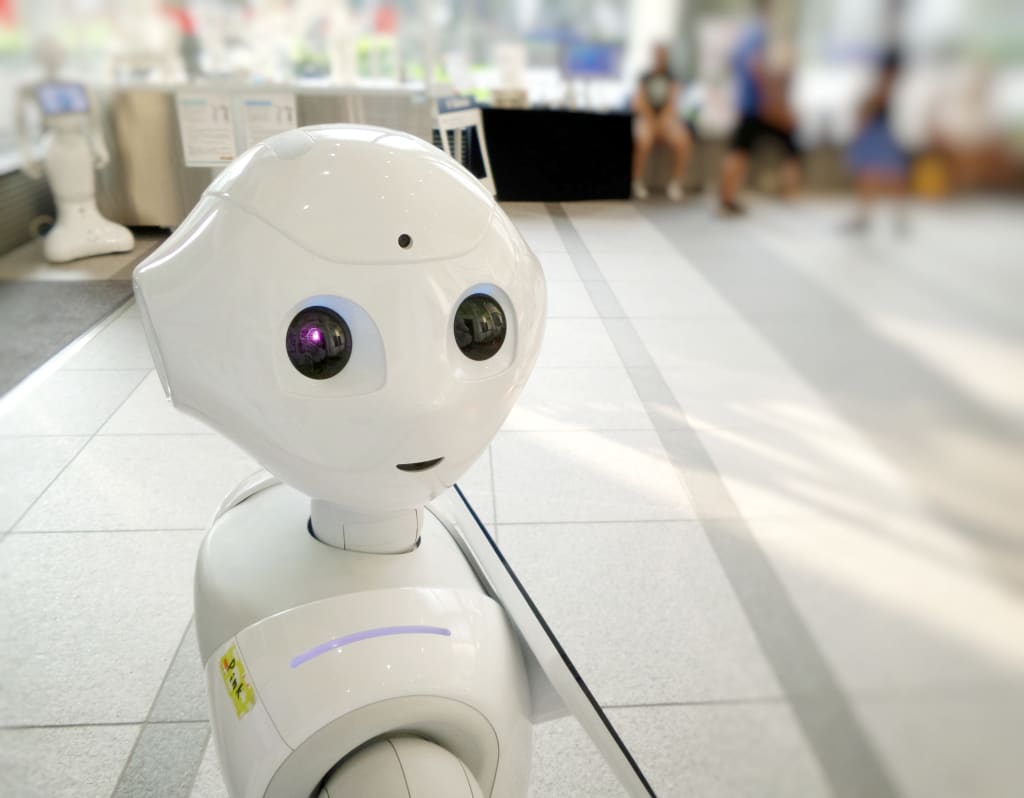The Future of Work: How AI Will Transform the Job Market
The Future of Work: How AI Will Transform the Job Market

The environment in which we live is changing quickly because of technologies like artificial intelligence (AI) and machine learning. These technologies have the power to reshape entire industries, the way we work, and the employment landscape as we know it. We will examine the current state of AI and its possible effects on the labor market in this chapter. We'll talk about how AI is being applied across many industries and what competencies will be needed to work with AI in the future.
How can artificial intelligence be defined?
The ability of machines to carry out tasks that would ordinarily need human intelligence is referred to as artificial intelligence. This covers activities like speech recognition, judgment, and picture recognition. Artificial intelligence comes in a variety of forms, such as rule-based systems, neural networks, and evolutionary algorithms.
The Status of AI Right Now
Several sectors, including healthcare, banking, transportation, and manufacturing, are currently using AI. AI is being applied to healthcare to create individualized treatment programs and increase diagnostic precision. AI is being used in finance to spot fraudulent transactions and decide which investments to make. AI is being applied in the field of transportation to create self-driving vehicles and enhance traffic flow. AI is being utilized in manufacturing to streamline workflows and cut waste.
AI's Effect on the Employment Market
The job market could be greatly impacted by AI. While AI may result in the automation of some occupations, it will also lead to the creation of new positions. For instance, the demand for individuals who can construct, maintain, and teach AI systems would increase as a result of AI. Data analysts, data scientists, and AI ethicists are just a few of the new occupations that AI will produce.
The job market is changing rapidly, and so are the skills that employers are looking for. In this chapter, we will explore the skills that will be most valuable in the future and how to develop them.
Technical Skills As technology continues to advance, there will be greater demand for workers with technical skills. Here are some of the technical skills that are likely to be in demand in the future:
Coding and programming: With the rise of automation and AI, there will be a greater need for workers who can program and maintain these systems.
Data analysis: As more and more data is generated, there will be a greater need for workers who can analyze and interpret this data.
Cybersecurity: With the increasing threat of cyber attacks, there will be a greater demand for workers who can protect computer networks and systems.
Soft Skills While technical skills are important, soft skills are equally important in the future job market. Here are some of the soft skills that will be in demand:
Creativity: With the rise of automation and AI, workers who can think creatively and come up with innovative solutions will be highly valued.
Adaptability: As the job market continues to change, workers who can adapt to new situations and learn new skills quickly will be in high demand.
Emotional intelligence: With an increasingly diverse and global workforce, workers who can understand and work effectively with people from different backgrounds will be highly valued.
Upskilling and Reskilling To stay relevant in the future job market, it is important to continually upskill and reskill. Here are some strategies for doing so:
Take courses and attend training programs: There are many courses and training programs available online and offline that can help you develop new skills.
Attend conferences and networking events: Attending conferences and networking events can help you stay up-to-date with the latest trends in your industry and connect with other professionals.
Conclusion
The way we work and live is being dramatically altered by AI and machine learning. While there are worries about how AI could affect employment, there is also potential for new job creation and higher workplace productivity. Workers will require a combination of technical and soft talents, as well as the willingness to keep learning and upgrading their skills as technology advances, to flourish in an AI-driven workplace.





Comments
There are no comments for this story
Be the first to respond and start the conversation.